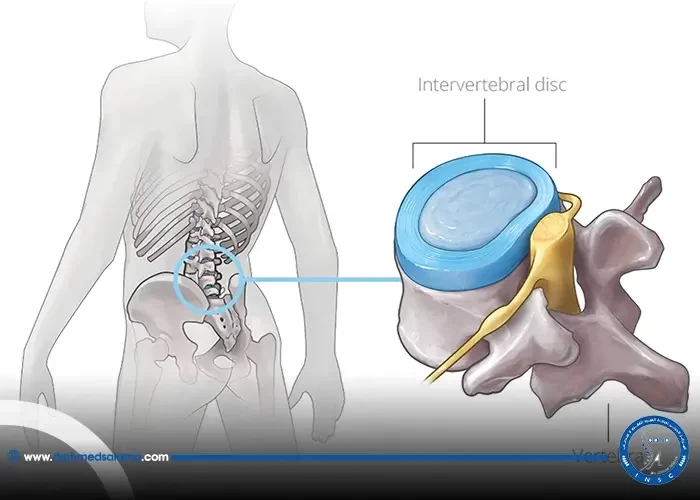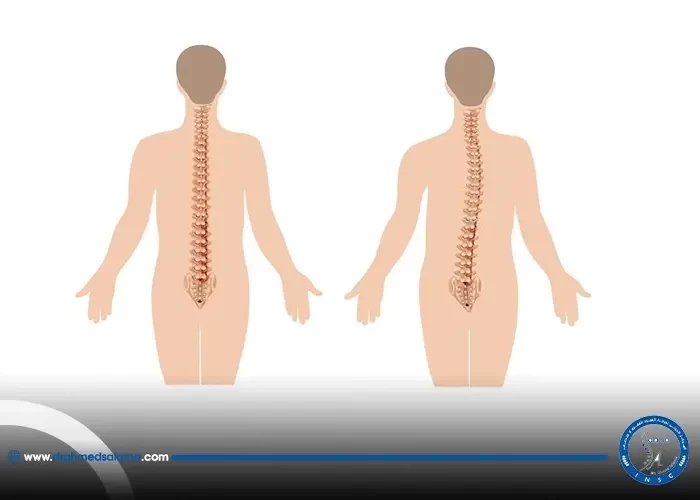Nasr City, 52 El Tayaran Street, in front of the Health Insurance Hospital

Simple hydrocephalus in the sixth degree

Hearing a diagnosis of mild hydrocephalus can be alarming, making it essential to accurately understand its causes and symptoms to understand how to treat it properly. Hydrocephalus is a condition with varying degrees of severity, raising many questions, such as: Is hydrocephalus dangerous? Can a person with hydrocephalus live? Can hydrocephalus be treated with medication?
In this article, we will learn the most important information about mild hydrocephalus, including symptoms, causes, and treatment methods. We will also explain how long a person with hydrocephalus lives. We will also explain why you should choose Dr. Ahmed Ibrahim Salama to receive the best specialized medical care for the diagnosis and treatment of hydrocephalus cases, using the latest technologies that ensure accurate monitoring and a personalized treatment plan for each case.
Mild Hydrocephalus
Mild hydrocephalus occurs when cerebrospinal fluid accumulates in a limited amount within the cavities known as the ventricles, leading to an increase in their size and increased intracerebral pressure. This pressure can affect brain tissue and cause various symptoms related to different brain functions, such as persistent headaches, concentration problems, or balance disorders. Although hydrocephalus can affect any age group, it is most common in infants and adults over the age of 60. Treating mild hydrocephalus is essential to prevent the condition from developing into more serious complications.
To obtain an accurate diagnosis and a safe and effective treatment plan for mild hydrocephalus, it is recommended to consult Dr. Ahmed Ibrahim Salama, a consultant neurosurgeon and spine surgeon. He has extensive experience in treating various hydrocephalus cases and ensures close follow-up of each patient to achieve the best results.
Causes of Hydrocephalus
Mild hydrocephalus occurs when the natural balance between the production and reabsorption of cerebrospinal fluid is disrupted, leading to its accumulation within the ventricles and increased pressure on the brain. Hydrocephalus can be congenital or acquired at any age. Its causes include:
Obstruction of the cerebrospinal fluid (CSF) pathway, preventing its normal flow within the brain.
Inability of blood vessels to adequately absorb CSF.
Excessive production of CSF that exceeds the body's ability to reabsorb it.
Congenital causes, such as abnormal development of the central nervous system, genetic problems, bleeding during birth, or infections during pregnancy, such as syphilis or rubella.
Pathological causes, such as brain or spinal cord tumors.
Nervous system infections, such as meningitis, brain hemorrhages resulting from strokes or head injuries, and any direct trauma to the brain.
To understand the cause of mild hydrocephalus and develop an accurate and safe treatment plan, it is recommended to consult Dr. Ahmed Ibrahim Salama, who provides a specialized diagnosis and comprehensive follow-up plan to ensure the best results and minimize complications.
Symptoms of Hydrocephalus
Mild hydrocephalus is a condition that can be observed through a range of symptoms that vary depending on age, including the following:
Symptoms of Hydrocephalus in Infants
Symptoms of hydrocephalus in infants appear as:
An abnormal increase in head size compared to the child's age.
Bulging of the anterior fontanelle (the soft spot on the infant's head).
Repeated vomiting without an obvious cause.
Excessive sleepiness or lethargy and lack of response to stimuli.
Difficulty breastfeeding and poor appetite.
Convulsions or seizures in some cases.
Delayed motor or mental development compared to children of the same age.
Abnormal eye movements, such as constant downward gaze (sunset eye).
Symptoms of Hydrocephalus in Children
In older children, symptoms vary and include the following:
Frequent headaches, especially in the morning.
Nausea and vomiting without an obvious medical cause.
Vision problems, such as double vision or blurred vision. Difficulty walking or losing balance.
Changes in behavior or poor concentration.
Excessive lethargy and sleepiness.
Studying behind or difficulty learning.
Convulsions or seizures in some advanced cases.
The child may have difficulty controlling urination.
Symptoms of hydrocephalus in adults
Symptoms of hydrocephalus in adults vary from case to case, and the most prominent include:
Loss of balance and difficulty walking, similar to staggering.
Urinary incontinence or inability to control urination.
Memory impairment and cognitive difficulties similar to symptoms of dementia.
Persistent headaches, especially in the morning.
Changes in behavior or mood, such as irritability or depression.
Slowness of movement and difficulty performing daily activities.
Excessive sleepiness or general lethargy.
To effectively and safely manage mild hydrocephalus, it's recommended to consult Dr. Ahmed Ibrahim Salama, who provides an accurate diagnosis and a comprehensive treatment plan to help alleviate symptoms and protect brain function, along with close follow-up to ensure the best possible health outcomes for you.
Is hydrocephalus dangerous?
Yes, it can be dangerous if left untreated, as the accumulation of excess fluid increases pressure on brain tissue, potentially causing complications that affect movement, memory, and balance. This can lead to permanent neuronal damage, disability, and even death.
Can hydrocephalus be treated with medication?
Despite the common question of whether hydrocephalus can be treated with medication, hydrocephalus cases often require surgical intervention to remove excess fluid and reduce pressure on the brain. The most prominent treatment methods include:
Ventriculoperitoneal shunt: A procedure in which the accumulated cerebrospinal fluid is transferred from the ventricles of the brain to another cavity in the body using a catheter to relieve pressure on the brain and restore normal brain function.
Endoscopic third ventriculostomy: This is a delicate surgical procedure to remove a blockage in cerebrospinal fluid. It is suitable for cases resulting from cerebrospinal fluid stenosis. It uses a camera-equipped endoscope to provide direct visualization and drain excess fluid.
Because determining the appropriate treatment method for mild hydrocephalus depends on an accurate diagnosis of each case, don't hesitate to consult a specialist like Dr. Ahmed Ibrahim Salama. He can accurately assess your condition, determine the appropriate treatment, and ensure effective intervention before the condition worsens.
Does a patient with hydrocephalus live a normal life?
Yes, many patients with mild hydrocephalus can live a completely normal life with proper treatment and close medical follow-up. However, the answer to the question, "Does a patient with hydrocephalus live?" depends largely on the speed of diagnosis and initiation of treatment. Neglect can lead to serious complications affecting movement, memory, and balance, while early intervention helps the patient avoid these risks and significantly improves their quality of life.
My Experience with Hydrocephalus
Many patients search for "My Experience with Hydrocephalus" to learn how to effectively address and manage this condition. Many experiences indicate that this condition initially causes mild symptoms such as headaches, concentration problems, or changes in movement. These symptoms may vary depending on age and severity of the condition. For infants, parents may notice a rapid increase in head size or changes in the child's response to stimuli. Children and adults may experience problems with balance, concentration, and memory. The elderly may experience difficulty walking and bladder control.
Many patients' experiences confirm that choosing the right doctor and ensuring regular follow-up can make a significant difference in speeding up recovery and improving quality of life. Many patients say, "My experience with hydrocephalus was challenging at first, but with early diagnosis and careful medical care, positive results gradually began to appear."
Therefore, if you or your child is suffering from simple hydrocephalus, consulting an experienced physician like Dr. Ahmed Ibrahim Salama will ensure a comprehensive and personalized treatment plan tailored to your condition, enabling you to manage your hydrocephalus with confidence and reassurance.
How long does a hydrocephalus patient live?
Many people wonder how long a hydrocephalus patient lives. The answer depends largely on early diagnosis and appropriate treatment. With careful medical follow-up and appropriate therapeutic intervention, most patients with simple hydrocephalus can live long and healthy lives, with survival rates reaching approximately 95%. However, if the condition is neglected and left untreated, the consequences can be very serious. Studies indicate that half of children with untreated hydrocephalus die before the age of three, and 80% of them do not reach adolescence.
Why Choose Dr. Ahmed Ibrahim Salama?
Dr. Ahmed Ibrahim Salama is a leading option for treating simple hydrocephalus. He combines extensive experience with modern medical technologies to ensure the best outcomes for patients. He relies on a thorough assessment of each case to develop a personalized treatment plan tailored to the patient's needs.
The most prominent reasons why Dr. Ahmed Ibrahim Salama is the right choice for treating this condition include:
Dr. Ahmed Ibrahim Salama has extensive experience in neurosurgery and spine surgery.
He relies on the latest medical diagnostic and surgical treatment techniques.
He is keen to provide customized treatment plans for each patient based on their condition.
He provides close follow-up before and after treatment to ensure full recovery.
He is highly skilled in handling both simple hydrocephalus and complex cases.
He is capable of performing delicate surgeries using safe and modern techniques.
He is committed to providing comprehensive care that encompasses both medical and psychological aspects of the patient.
He has an excellent reputation among patients and colleagues in the medical field.
The doctor is committed to providing accurate and clear consultations to help the patient understand their condition and the available treatment options.
In conclusion, simple hydrocephalus is a condition that can be effectively managed with early diagnosis and appropriate treatment. Paying attention to symptoms and following up with a specialist ensures the preservation of brain function and minimizing complications, whether for infants, children, or adults. To achieve the best treatment outcomes, it is recommended to consult Dr. Ahmed Ibrahim Salama, a consultant neurosurgeon and spine surgeon. He provides a precise treatment plan using modern techniques and continuous follow-up to ensure a full recovery and a better quality of life for you and your loved ones
What is simple hydrocephalus?
Simple hydrocephalus is a limited accumulation of cerebrospinal fluid within the ventricles of the brain, leading to increased pressure on the brain without significantly affecting its neurological function. Early treatment facilitates treatment and prevents the development of hydrocephalus into a more complex condition.
Is water on the brain dangerous?
Yes, water on the brain can be dangerous if left untreated. The buildup of excess fluid puts increased pressure on brain tissue, which can cause complications including movement problems, imbalance, and sometimes permanent damage to nerve cells, even death.






